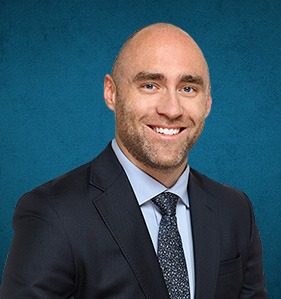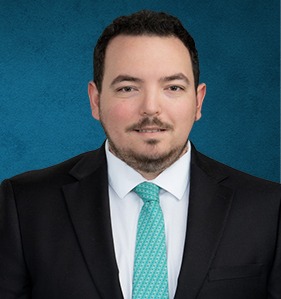CALL (800) 863-5312 to speak with a Surgical injury attorney for free
Any time you receive medical treatment or undergo a surgery, there are generally many different healthcare professionals involved in your treatment, including surgeons, doctors, nurses, radiologists, lab technicians, anesthesiologists, and others. While you expect to be able to count on each one of these professionals to perform their jobs with competence and the proper care, mistakes may be made at any stage of the treatment process. These mistakes may have severe, life-threatening, or even fatal consequences for a patient.
If you have suffered any injuries or damages as a result of an error during surgery or a procedural error committed by your doctor or any other healthcare worker, you should contact Zinda Law Group today. Call (800) 863-5312 to schedule your free consultation with an experienced medical malpractice lawyer near you. If we cannot win your case, you will not owe us anything.
how do i know if the doctor made a surgical error?
In many cases, you may not always immediately know if your doctor made a surgical error. In some cases, such an error may be readily apparent, such as if he or she operated on the wrong body part or performed the wrong operation on you.
However, other injuries may not be as readily obvious immediately after a surgery, such as if the surgeon accidentally injured an organ or other tissue or caused nerve damage. Further, depending on your operation, some surgical errors may go unnoticed as a result of more noticeable side effects or complications of your condition, or they may simply be misconstrued as being related to your original condition rather than a result of a negligent mistake committed during your surgery or treatment.
Common Examples of Surgical Errors
While the type of surgical error that may injure a patient varies, some of the most common causes of a surgery injury include:
- Operating on the incorrect patient
- Operating on the incorrect body part
- Performing the incision at the incorrect location on the patient
- Administering too little or too much medication, such as anesthesia
- Leaving various foreign objects, such as a surgical instrument or sponge, inside the patient
- Injuring organs or other tissue adjacent to the surgery area
- Injuring the patient’s nerve during surgery
If you are hurting after surgery, a lawyer can help you ask the right questions of your doctor to determine whether your pain is normal or abnormal for the circumstances. They can also explain your legal rights and help you determine whether you may have a potential medical malpractice claim.
Common Examples of Procedural Errors
Meanwhile, with the sheer volume of various policies, protocols, and procedures that dictate patient care in clinics, hospitals, and other healthcare settings, the list of potential procedural errors is vast, perhaps limitless, but may definitely include:
- Miscommunication between the doctor and patient or between the doctor and other healthcare professionals, such as nurses
- Medication errors
- Failure to prevent infections after surgery
- Failure to properly monitor the patient’s condition
- Failure to consult with a specialist when necessary
- Failure to obtain necessary medical or medication history during intake before starting a course of treatment
- Failure to make sure the environment is sterile
- Failure to prevent blood clots from occurring
- Improper handling or processing of laboratory samples or the results
- Improper calibrating, maintaining, or cleaning surgical or other medical equipment
- Failure to obtain informed consent before a surgical procedure or starting a course of treatment
If you suffered any injuries or damages as a result of one of these procedural errors or any other mistake made by a healthcare provider, you should contact one of the experienced surgical injury lawyers from Zinda Law Group as soon as possible to help you better understand your legal rights and what courses of action are available to you. We can also discuss whether you may be entitled to compensation at all.
how often do doctors make mistakes during surgery?
While medical malpractice claims are one of the most common personal injury claims across the country, along with vehicle accident lawsuits, the true costs to patients injured by their medical providers remain both understated and under-reported. Indeed, patient safety experts at Johns Hopkins reported that medical errors cause more than 250,000 deaths per year in the United States, representing over 100,000 more deaths per year than the next closest cause of death! Respiratory disease kills about 150,000 people per year.
Perhaps even more alarming, the Johns Hopkins researchers pointed out that because the Centers for Disease Control fails to directly account for deaths attributable to medical care, those deaths go uncounted by any standardized method for collecting national statistics. Making matters even worse yet, perhaps under 10 percent of all medical errors are even reported.
Part of this underreporting is caused by the difficulty of pursuing a medical malpractice claim in many states, with tort reform efforts over the past two decades adding to the complexity, expense, and difficulty for victims of medical errors to seek compensation for their injuries. As a result, far too many medical errors go unreported and injured victims are left to recover physically and financially on their own while families of victims whose deaths were caused by medical errors are left to mourn their loved ones in addition to bearing financial burdens caused by their loss.
If you or a loved one were hurt by a medical error, a medical malpractice attorney from Zinda Law Group can help you make sure that your medical error does not go unreported and that you are able to pursue the maximum compensation you may be entitled to.
CAN I SUE IF I BELIEVE MY SURGERY WENT WRONG?
If you believe your surgery went wrong, you may have been the victim of a medical error that may entitle to you compensation. However, each individual case is unique; the success of yours will depend on the specific facts and circumstances of your case. First, you need to determine whether you may actually be able to file a medical malpractice lawsuit; the good news is, you may have a claim even if your surgical error was not immediately apparent and you were not hurting after your surgery.
Whether you may be able to sue for an error does not depend on whether it was malicious, but rather whether the error could have been avoided if the surgeon had exercised the appropriate level of due care and diligence during the surgery. Establishing this fact is one of the steps to a successful medical malpractice claim, which also include:
- First, you will have to establish that you had a doctor and patient relationship with the doctor who injured you to prove he or she actually owed you a duty of care.
- Next, you will need to establish the applicable standard of care of what a reasonably skilled surgeon or doctor in your region would have done in a similar situation and how the provider failed to meet that standard during your procedure or treatment.
- Even if your doctor failed to meet the relevant standard of care during your treatment, you will still need to prove that this medical negligence was the cause of your injuries or damages.
- Finally, you will only be able to sue if you are also able to prove the doctor’s medical negligence actually caused your harm or damages, such as physical injuries, additional medical costs, emotional anguish, or lost wages from missed work.
A surgical or procedural error can cause serious injuries to a victim, including temporary or permanent disabilities or even death. Further, such a mistake can require additional medical care or even additional surgeries to correct the error, which may cause the patient to incur additional medical costs as well as miss additional time from work, further worsening the financial burden suffered as a result of the doctor’s error. To be able to sue if you believe your surgery went wrong, it is crucial to contact an experienced surgery injury attorney as soon as possible; this will allow your lawyer to immediately begin investigating your potential claim and gather as much evidence as possible to prove your claim.
Each state sets specific legal time limits, called the statute of limitations, within which any medical malpractice lawsuit must be brought. Many states also require you to first consult a “medical expert” to review your records and agree that medical negligence may have occurred; some states also require you first notify the physician or healthcare provider you claim injured you within a certain timeframe before filing a lawsuit. Hiring a lawyer, obtaining your medical records, consulting with an expert, and notifying the healthcare professional before filing your claim will all take time, making it urgent that you not wait to contact an attorney and risk being disqualified from seeking compensation.
Contact a surgery injury attorney near you today
Patients place their trust, wellbeing, and their very lives in the hands of their doctors and other healthcare providers. Even a single surgical, procedural, or other medical error can lead to catastrophic and life-threatening or even fatal consequences for the victim of that mistake. Given the drastic consequences of these mistakes, medical providers like surgeons and other physicians must be held accountable to ensure they take necessary care when treating a patient.
If you or your loved one were injured by a surgical or procedural error, you should call Zinda Law Group immediately to schedule your free consultation with skilled medical malpractice attorneys as soon as possible. Our experienced team has years of experience helping other victims of medical malpractice seek the maximum compensation they may be entitled to after they were injured by a medical provider.
Call (800) 863-5312 today for a free consultation with a surgery injury lawyer from Zinda Law Group. You will not pay anything unless we win your case. That’s our No Win, No Fee Guarantee.
Meetings with attorneys are available by appointment only.


























